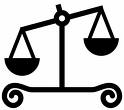In my illustrious (or at least long) career, I have had 3 jobs. After I finished all of my training, I was an employed physician for nearly 10 years. Afterwards, I joined a small private practice group where I remained for 20 years. Over time, as partners in the practice left or retired, I became the practice’s president by default. I don’t really have an authority persona, which my staff was well aware and hopefully appreciated. In nearly all cases when a decision could either favor the interests of our employees or the practice, I favored our staff. This earned a huge measure of staff loyalty, but no achievement award from the Chamber of Commerce. I am more than content to be regarded as a caring boss than a shrewd businessman. Three years ago, I joined a rather large Cleveland medical enterprise where I now serve as a physician employee.
I know the advantages and drawbacks intimately of both models
– employment vs business owner. Indeed,
an entire blog could be devoted to comparing and contrasting the two
models. It’s a complex issue. It is self-evident that each option has its
own advantages. But the analysis likely
changes depending upon the phase of the physician’s career. For example, now in the autumn of my career,
do you think I miss worrying over making payroll, erosion of patient referrals
to the practice, declining reimbursement, grinding paperwork fighting insurance
company denials, rising overhead expenses, compliance with state and government
agencies, endoscope repair and replacement and physician recruitment? Sound like fun? Not at this stage of my career. Presently, all of the above cited tasks are
now in my employer’s in box – not mine.
I am now fully and enthusiastically devoted solely to the practice of medicine,
which has been a joy.
But at earlier phases of a physician’s career, he or she may
willingly take on the burdens of managing a private business in return for the
autonomy and independence that this model affords. Indeed, that was me for 20 years. But no longer.
Of course, I miss the freedom that I enjoyed when I was the
decision maker. It is no longer
effortless for me to take days off. I do
not hire my own staff. No one, save the
patients, asks my advice on anything. But
I am using a different set of weights and measures now. And for me at this stage of my professional
life, my scale tilts markedly in the employed direction.


Comments
Post a Comment